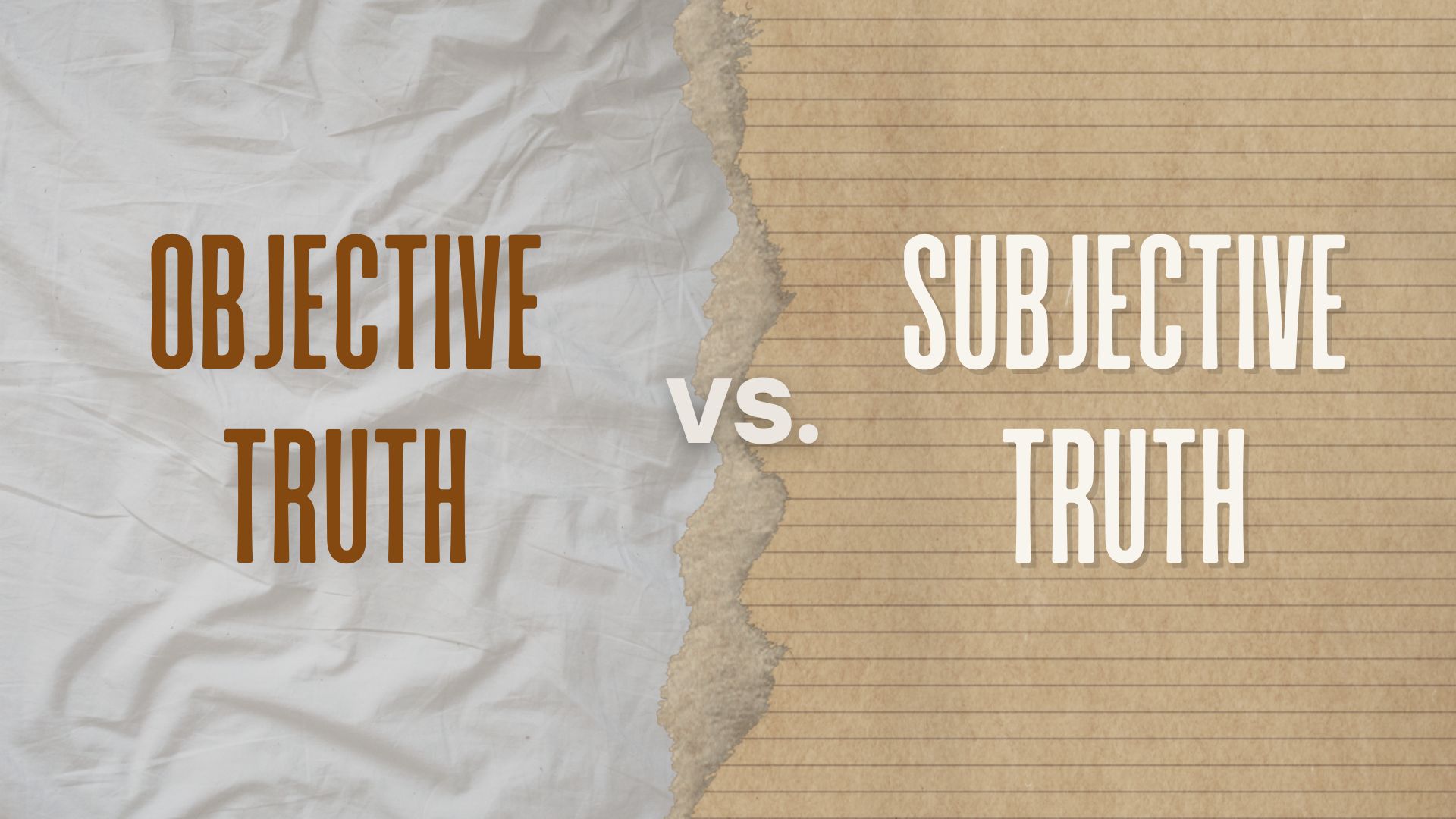Objective and subjective truth. What do these terms mean? Is it important to know the difference?
While the words may sound similar, their differences are significant. Understanding and accepting them will affect the way you live, and how you view truth in general.
What is Objective Truth?
Truth can rightly be described as what corresponds to reality. What is indeed real and factual.
The word objective applies a non-biased standard. It means truth that is true, regardless of one’s feelings, biases or desires. It is set or determined by an object outside of the individual.
Objective truth includes observable facts, like, “The Statue of Liberty is in New York.” Or scientifically learned realities like the force of gravity and the speed of light. Or events that took place in history, such as “Baseball pitcher Nolan Ryan threw a no-hitter on May 1, 1991.”
What is Subjective Truth?
When a person making a claim (the subject) is the determiner of whether a statement is true, this is known as subjective truth.
An example would be if I said my favorite flavor of ice cream is mint chocolate chip. The declaration, “My favorite,” is determined by me, and thus it is subjectively true.
For someone to say to me, “What you said is false. Your favorite flavor is banana,” would not be true. (That combination would likely make me nauseous.)
Neither would a statement like, “The best tasting flavor of ice cream is vanilla.” This is a subjective claim on something outside of the subject.
Why is this important?
While these two things seem straightforward, our culture has increasingly confused the two. I see this primarily in the outright rejection of objective truth, and the misuse of the label subjective truth.
You’ll hear statements like, “That may be true for you, but not for me.” Or “This is my truth.”
What do people mean when they say things like this?
Chances are good that if your friend claims something is true for you, but not for him, he isn’t talking about favorite flavors of ice cream. It’s more likely he’s reacting to an objective truth claim, but does not want to deal with it in the objective realm. So he attempts to make it subjective.
This is a good time to ask questions to learn more about his intent. “What do you mean by that?” is a great way to help you get on the same page.
We have let our pride convince us that we have more control over reality than we do. We want our way, and we’re willing to deceive ourselves that how we want things to be is how they really are.
But while we claim we are not comfortable with objective truth, we still want it.
How so?
When we watch a football game, we expect the referees to be completely neutral when making a call. We don’t want them to be biased. We want them to be objective.
When a court case is heard, we want the judge to rule rightly. We want him or her not to be unfairly influenced, but objective in the ruling handed down.
We understand instinctively that a moral standard of right and wrong exists. We don’t want others to be unfair or unkind to us.
But we balk at what that ultimately means. If there is a moral law, there must be a moral lawgiver. And if a moral lawgiver, then we are accountable to Him.
And we know that we have done wrong. All of us have. So what do we do?
The human tendency is to deny or to cover up. It’s what our first parents did in the Garden of Eden. Then, we’ll try to make up for it. To earn our way back to God.
But this can never be done.
Romans 3:23 says, “for all have sinned and fall short of the glory of God.” Romans 6 tells us that “the wages of sin is death.” What we have done has earned us separation from God.
But there is good news! While we cannot earn salvation, God provided it as a free gift, through the perfect life of His Son, the Lord Jesus Christ.
“[I]f you confess with your mouth that Jesus is Lord and believe in your heart that God raised him from the dead, you will be saved.” (Romans 10:9)
If you’ll humbly come to God and acknowledge you’ve broken His rules, turn from the things you know you should not do, and ask Him for forgiveness, He is rich in mercy and delights to show you grace.
That’s my prayer for you. No matter what you’ve done or road you’ve traveled, put your faith in Jesus, and rest assured you no longer have to carry your burden. He now carries it for you.




